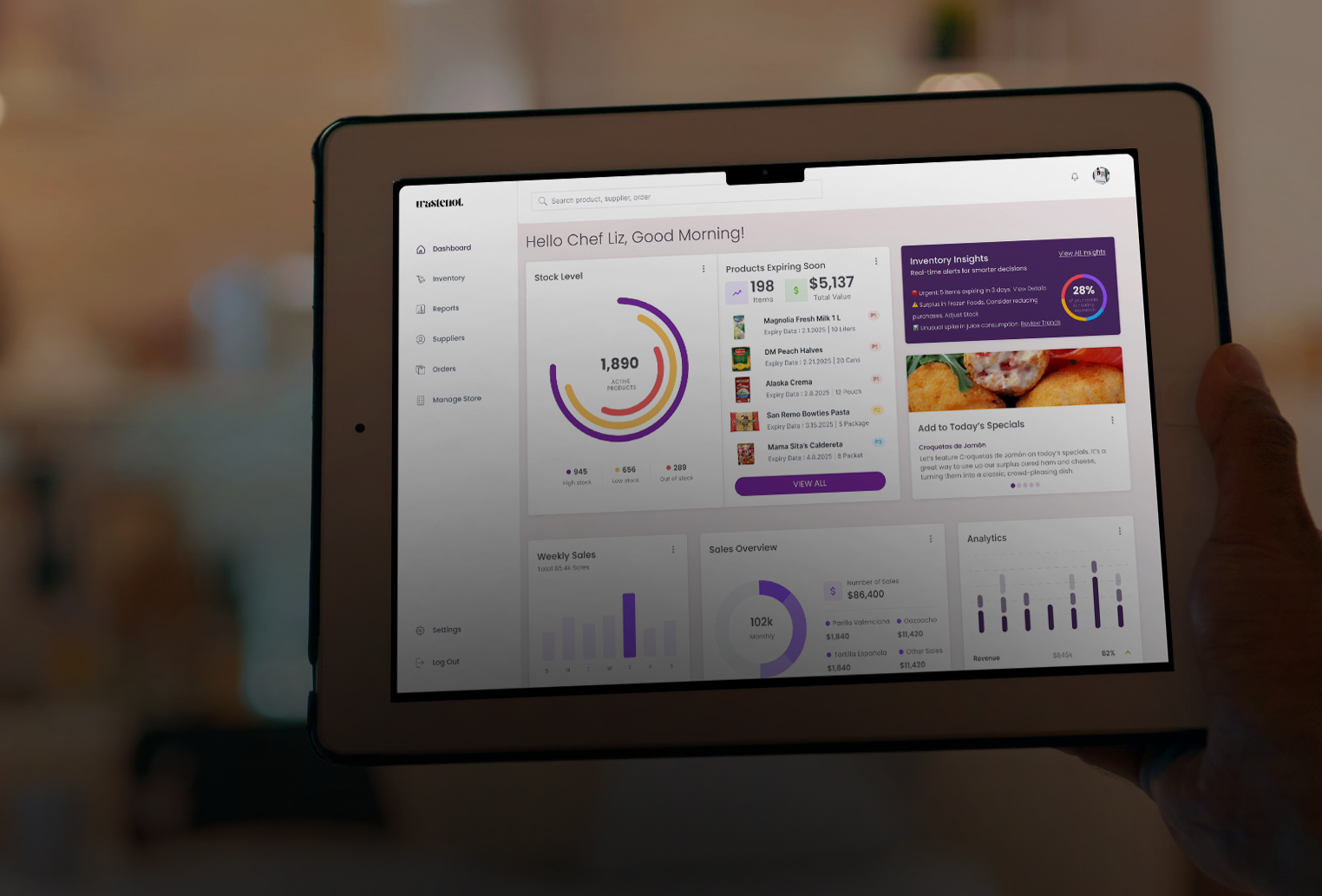wastenot. Rethinking Food Waste with AI
Food waste isn’t just an environmental issue—it’s a business problem, costing the industry over $940 billion a year and contributing to 8–10% of global greenhouse gas emissions. WasteNot is tackling this challenge head-on, using AI-driven technology to help restaurants optimize inventory, minimize waste, and operate more sustainably. From real-time tracking to smart redistribution, we’re redefining food waste management—one meal at a time.

wastenot. is changing the game with AI-powered solutions designed to help businesses track inventory, minimize waste, and operate more sustainably. By leveraging advanced technologies like machine learning, computer vision, and geolocation AI, wastenot. enables food service providers to optimize their supply chain, reduce costs, and make a meaningful impact.
Smarter Inventory, Less Waste
One of the biggest contributors to food waste is inefficient inventory management. Overstocking, mismanaged expiration dates, and unpredictable demand often lead to unnecessary disposal of perfectly good food. WasteNot tackles this issue with AI-powered inventory optimization, helping businesses:
- Predict Demand Accurately – Machine learning analyzes past sales data, seasonal trends, and customer behavior to align stock levels with actual demand, reducing over-ordering.
- Track Expiry Dates – Computer vision scans perishable items, flagging ingredients before they expire so they can be used, discounted, or donated.
- Optimize Stock Rotation – AI-driven FIFO (first-in, first-out) systems ensure older inventory is prioritized, cutting down on spoilage.
By streamlining food usage, businesses not only reduce waste but also improve profitability and lessen their environmental footprint.
Smart Alerts & Surplus Redistribution
Food waste doesn’t just happen in the kitchen—it’s often the result of poor communication. Chefs and restaurant managers may not always be aware of ingredients nearing expiration or excess stock that could be repurposed. wastenot’s AI-driven smart alerts address this by notifying businesses when:
- Ingredients are about to expire, giving teams time to use or donate them.
- Surplus inventory can be repurposed within the menu or shared across locations.
- Irregular consumption patterns suggest inefficiencies, allowing for better purchasing decisions.
To ensure that excess food doesn’t end up in landfills, wastenot’s geolocation AI connects businesses with local food banks and nonprofits, making redistribution seamless and helping to combat food insecurity.
AI-Driven Meal Suggestions
Instead of letting surplus ingredients go to waste, why not repurpose them? wastenot’s Natural Language Processing (NLP) technology generates creative meal suggestions based on available ingredients, ensuring that food is used efficiently while maintaining menu variety.
Additionally, behavioral AI analyzes customer dining habits to optimize portion sizes, preventing plate waste and enhancing the overall dining experience. These AI-driven insights empower restaurants to make the most of their inventory while encouraging sustainable and cost-effective menu planning.
Sustainability Tracking & Carbon Footprint Reduction
Beyond reducing waste, restaurants and food suppliers need to measure their sustainability efforts. WasteNot provides real-time sustainability reporting that tracks:
- Food Waste Reduction & Cost Savings – Businesses can monitor how much food (and money) they’re saving over time.
- Carbon Footprint Analysis – AI calculates the environmental impact of wasted food, providing actionable strategies to minimize carbon emissions.
These insights allow businesses to make data-driven decisions that align with both financial and environmental sustainability goals.
The Future of AI in Food Waste Management
The food industry is on the brink of a transformation, and AI is at the center of it. wastenot. is leading the charge with cutting-edge innovations, including:
- IoT-Connected Smart Sensors – Automating food tracking from delivery to disposal.
- Blockchain for Transparency – Ensuring traceability in food sourcing and waste reduction efforts.
- AI-Driven Waste Prevention Strategies – Helping businesses work toward zero-waste kitchens.
As AI technology continues to evolve, the possibilities for smarter food management will only expand, making it easier for businesses to cut costs, enhance efficiency, and drive sustainability.
Join the wastenot. Movement
Food waste reduction is no longer just an ethical concern—it’s a business imperative. wastenot. is helping restaurants, food suppliers, and hospitality businesses embrace AI-driven solutions that turn waste into opportunity.
By leveraging smart inventory management, surplus redistribution, and sustainability tracking, businesses can save money, reduce their environmental impact, and lead the charge toward a zero-waste future.
Are you ready to unlock new value in the food industry? Partner with wastenot. and invest in a future where transformative AI solutions drive unparalleled efficiency, sustainability, and profitability in food operations.

